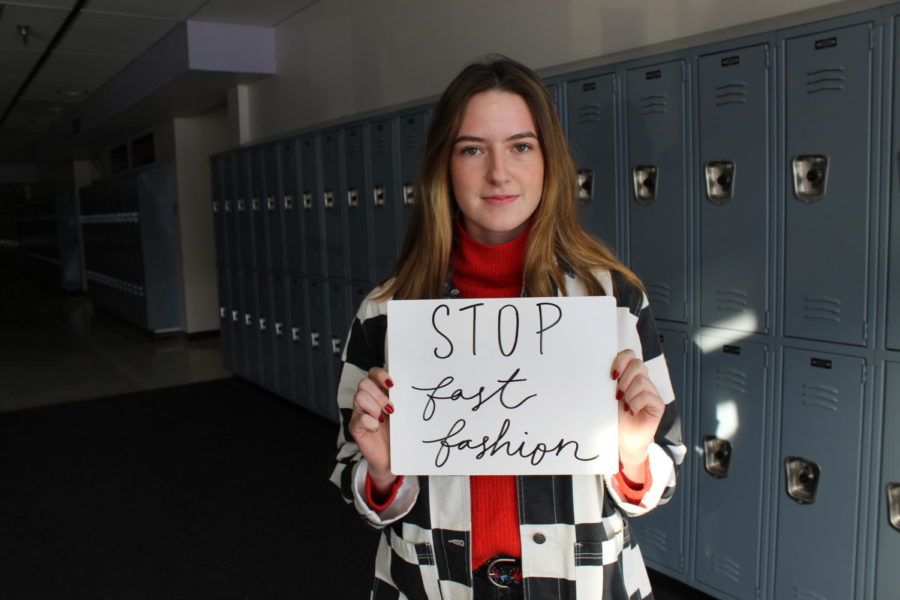Forget Fast Fashion: Why you should avoid big brand items
March 8, 2019
Sherpa jackets, thigh-high boots, joggers and of course, the occasional pair of knock-off Yeezys or Adidas shoes. What do all of these clothing items have in common? Your first thought may be that they’re highly trendy or “in” for the teenage generation right now. While this is true, would it cross your mind that the manufacturing and sale of these pieces puts thousands of factory workers’ lives at risk, result in the stealing and illegal mass-production of numerous designers’ original pieces and contribute to the destruction of our environment? Hard to believe, right? Welcome to the fast fashion industry.
For the typical high school student, it seems that guys and girls alike are always looking for ways to get their hands on the trendiest threads for the cheapest price. What we view as the hottest styles can be plucked from countless hip clothing retailers during any given season, and as a penny-pinching teenager, the ability to purchase them
without emptying your (or rather, your parents’) wallet sounds ideal. But bigname brands spitting out items for consumption faster than buyers can handle has a detrimental impact on our world, and more of us are guilty of supporting it than you’d think. Zara, Forever 21, H&M, TopShop and more recently Fashion Nova are just a few examples of monster corporations who are dominating the fast fashion game.
The process of developing rapid, disposable fashion is simple. Looks are snatched fresh from the catwalk or celebrity culture, chewed up and reprocessed, then spit back out for purchase in popular street stores at breakneck speed. The clothing items are often mass-produced in unsafe factories all across the world and made with textiles that strain the environment. For example, polyester, one of the most commonly used fabrics, is derived from fossil fuels, contributing to global warming, and can shed microfibers that add to the increasing levels of plastic in our oceans when it’s put through a wash, according to Good On You. In addition, vivacious colors and patterns on pieces are oftentimes achieved with the use of toxic chemicals, making textile dyeing one of the world’s biggest contributors to the pollution of clean water.
Fast fashion also contributes to the “throw-away” culture of consumers. A garment’s lifespan in a buyer’s closet is often just as short as its time spent in production, resulting in a constant consumer dissatisfaction with their wardrobe and an aggressive hunger to stay on top of trends due to new styles being put out so quickly. According to another study published in Good On You, 235 million pieces of clothing were thought to have been sent to landfill in spring 2017 in the UK alone.
One of the newest issues growing from this industry is the illegal reproduction of high end designs by fast fashion companies. Most guilty of this in recent times is Fashion Nova, an extremely prevalent online retailer. Numerous accusations have been made of Fashion Nova illegally mass-producing runway looks and pieces from various designers. According to a case reported by Atlanta Black Star, Fashion Nova was accused by designer Jai Nice, owner of online store Kloset Envy, of buying Nice’s original clothing item and returning it, promptly followed by the retailer themselves dropping a near-identical garment and claiming it as their own design. Next time you step foot into a Forever 21 franchise, try to see beyond the low price tags and irresistibly flashy designs. Many trendy pieces are seen to be the “current staples” in a shopper’s closet, when in reality their spotlight only lasts a moment in the fashion scene and leaves a permanent impact on the world around us.



